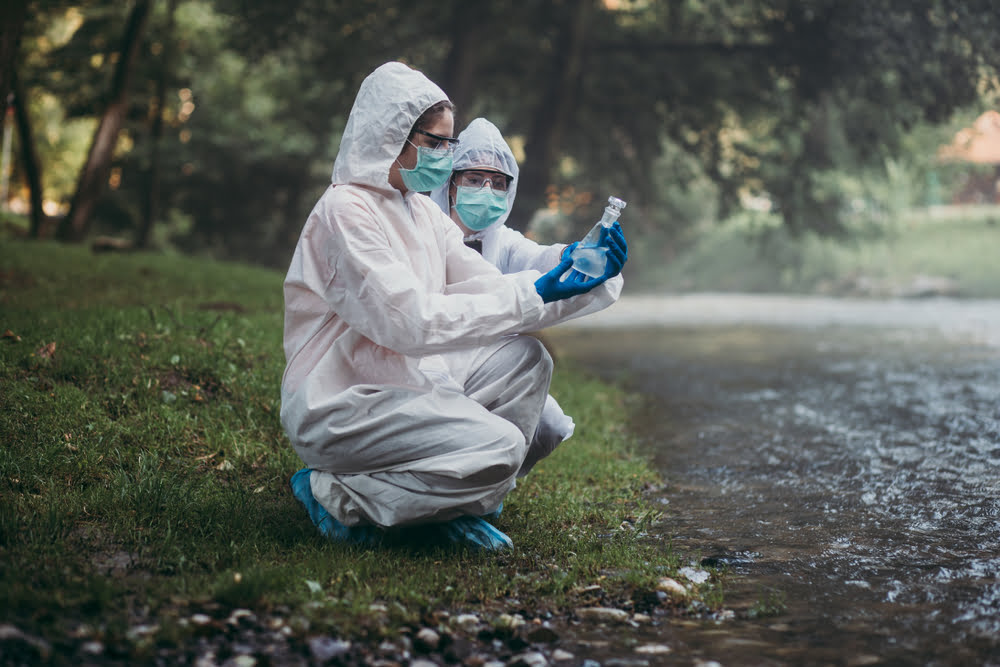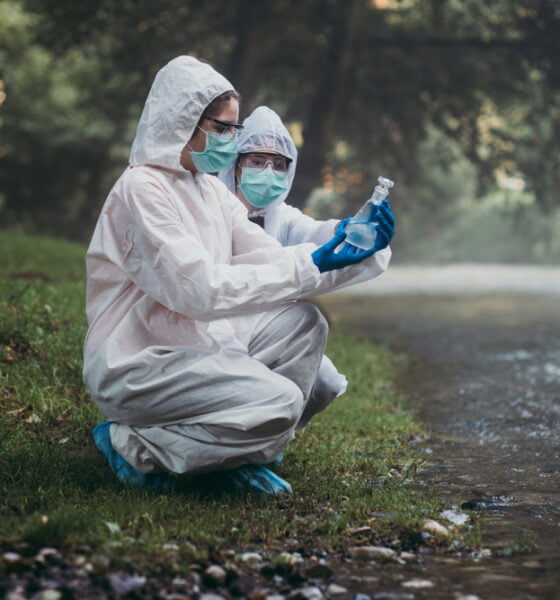

Environment
Understanding the Evolving Science of Environmental Health
We have talked a lot about some of the problems caused by harming the planet. The most frequent issue we have talked about is the impact it has on climate change.
However, problems with the environment can cause other consequences. They can be especially harmful to our health.
Pollution alone causes over 9 million premature deaths every year. There are a number of other ways that environmental problems affect our health. Keep reading to learn more.
Environmental Problems Strongly Affect Your Health
Have you ever stopped to think about how the environment affects your health? Believe it or not, the air we breathe, the water we drink, and the food we eat all have a huge impact on our well-being. That’s where environmental health comes in. This field focuses on the relationship between the environment and human health. The American Public Health Association has a detailed overview of this field.
It’s so important because it affects everyone, regardless of age, gender, or location. In this article, we’re going to explore the ways in which environmental health impacts our lives, and why it’s crucial that we prioritize it. So, let’s dive in!
Human Health and the Environment
The relationship between human health and the environment is a complex one. Our health is affected by a multitude of factors, many of which are environmental. For example, the air we breathe can contain pollutants that lead to respiratory problems like asthma and bronchitis. We have another article on the various problems pollution causes for our lung health. Exposure to contaminated water can cause gastrointestinal illnesses and even more severe conditions like cancer. Even the food we eat can have a huge impact on our health, as certain pesticides and chemicals can accumulate in our bodies over time.
The impact of the environment on our health is particularly pronounced in vulnerable populations, like children, the elderly, and those with pre-existing health conditions. For example, children who live in areas with high levels of air pollution are more likely to develop asthma and other respiratory conditions. Similarly, the elderly are at a higher risk of heat-related illnesses during heat waves, which are becoming more frequent due to climate change.
It’s important to note that the relationship between the environment and our health is a two-way street. Not only does the environment impact our health, but our actions can also impact the environment in turn. For example, the use of fossil fuels and other non-renewable resources contributes to air and water pollution, as well as climate change. Ultimately, it’s up to us to take action to protect both our own health and the health of the planet.
The Impact of Environmental Degradation
Environmental degradation is a term that refers to the deterioration of the environment through the depletion of natural resources, pollution, and other human activities. Unfortunately, the impact of environmental degradation on human health is significant.
Air pollution, for example, is a major cause of respiratory problems, including asthma and chronic obstructive pulmonary disease (COPD). It can also exacerbate existing health conditions, such as heart disease and diabetes. Water pollution can lead to gastrointestinal illnesses, as well as more severe conditions like cancer. The use of pesticides and other chemicals in agriculture has been linked to a range of health problems, including cancer, developmental delays in children, and reproductive issues.
Climate change, which is largely caused by human activities, is another major driver of environmental degradation. It is contributing to the spread of infectious diseases, as warmer temperatures allow disease-carrying insects to survive in areas where they were previously unable to. It is also leading to more frequent and severe heatwaves, which can cause heat exhaustion and heatstroke, particularly in vulnerable populations like the elderly and young children.
All of these impacts of environmental degradation highlight the urgent need to take action to protect the environment and human health. By reducing pollution, conserving natural resources, and transitioning to more sustainable practices, we can help to mitigate these harmful effects and create a healthier future for ourselves and future generations.
The Importance of Sustainable Development
Sustainable development refers to a way of using resources that meets the needs of the present without compromising the ability of future generations to meet their own needs. It’s crucial for environmental health because it ensures that we are using resources in a way that does not deplete them or cause harm to the environment.
One of the most important aspects of sustainable development is reducing our reliance on non-renewable resources, such as fossil fuels. This not only helps to mitigate the impacts of climate change but also reduces air and water pollution. Another key component of sustainable development is protecting natural habitats and biodiversity. By preserving ecosystems, we can ensure that they continue to provide important services, like clean water and air, and support human health.
There are many examples of sustainable development practices, including the use of renewable energy sources like solar and wind power, the implementation of green infrastructure to reduce flooding and improve air quality in urban areas, and the promotion of sustainable agriculture that reduces the use of pesticides and promotes biodiversity. These practices not only benefit the environment but also support human health by reducing pollution, improving access to clean water and air, and promoting healthy diets.
Overall, sustainable development is crucial for ensuring that we can meet our current needs without compromising the ability of future generations to meet theirs.
The Role of Individuals in Environmental Health
As individuals, we all have a role to play in promoting environmental health. There are many actions we can take in our daily lives that can help to reduce our impact on the environment and promote a healthier planet.
One of the most important things we can do is to reduce our use of non-renewable resources, such as fossil fuels. This can include things like driving less, using public transportation or biking, and using energy-efficient appliances in our homes. We can also reduce waste by recycling, composting, and reducing our use of single-use plastics.
Another important way individuals can promote environmental health is by supporting sustainable agriculture practices. This can include buying locally-grown produce, choosing organic or sustainably-grown products, and reducing our consumption of meat and dairy, which have a large environmental footprint.
Individuals can also play a role in advocating for policies that promote environmental health, such as supporting politicians who prioritize environmental issues, and supporting businesses that prioritize sustainability and ethical practices.
Ultimately, the choices we make as individuals can have a significant impact on the environment and human health. By making conscious choices and advocating for change, we can all play a role in creating a healthier and more sustainable future.
The Role of Government in Environmental Health
The government plays an important role in promoting environmental health through policies and programs that aim to protect natural resources and reduce pollution. These policies can range from regulations on industrial emissions to incentives for renewable energy development.
One of the most important roles of government in promoting environmental health is through the implementation of regulations and standards to reduce pollution. For example, the Clean Air Act and Clean Water Act in the United States set limits on the number of pollutants that can be released into the air and water. These regulations help to protect human health by reducing exposure to harmful pollutants.
Governments can also promote environmental health by investing in sustainable infrastructure and technology. This can include things like building bike lanes and public transportation systems, supporting the development of renewable energy, and investing in green building practices.
Another important role of government in promoting environmental health is through education and outreach programs that help to raise awareness about environmental issues and encourage individuals and businesses to take action. These programs can range from public service announcements to educational campaigns in schools.






























